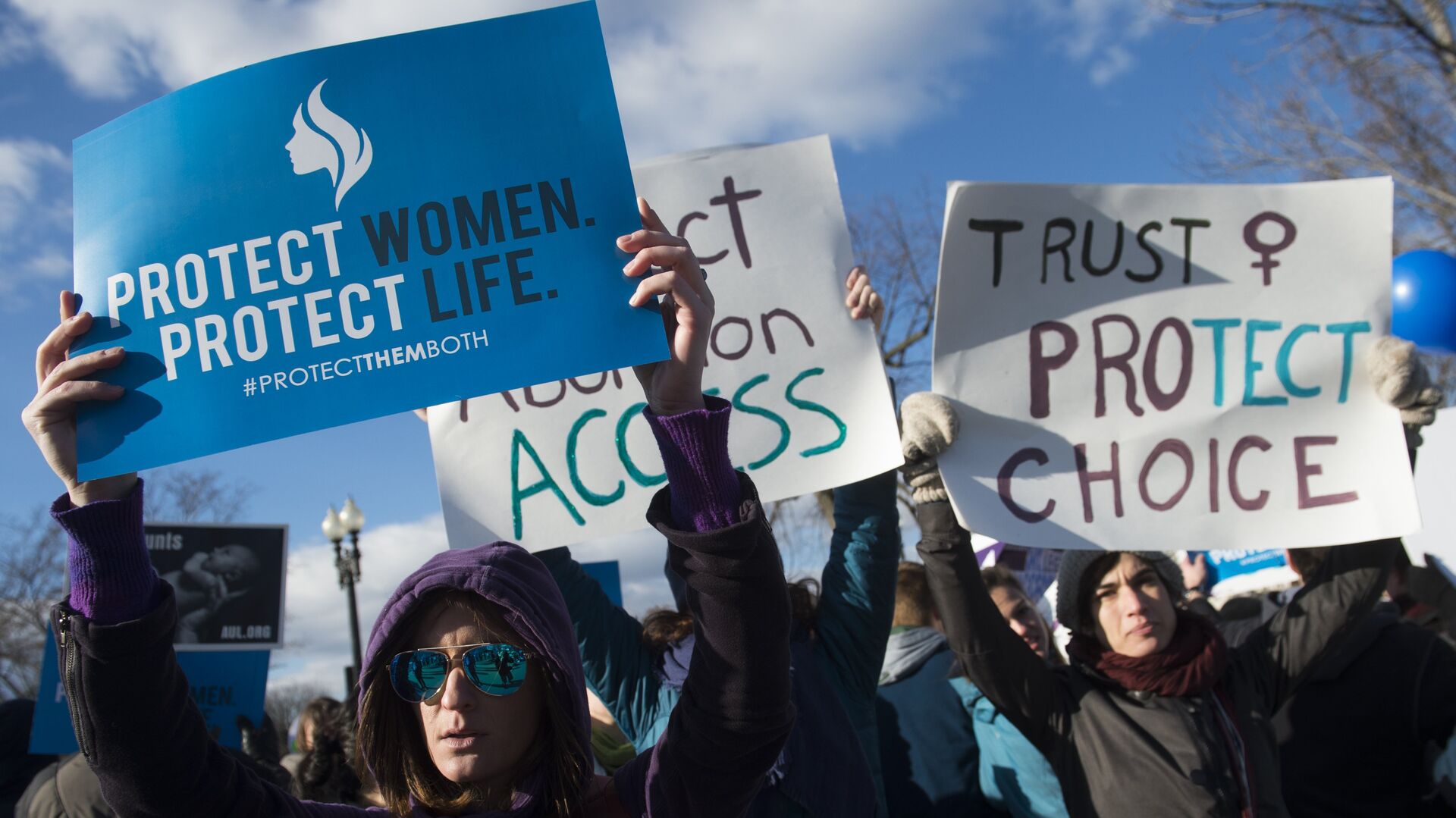Supreme Court Leaves Texas Anti-Abortion Law in Place, But Will Hear Arguments on Right to Challenge
19:10 GMT 22.10.2021 (Updated: 13:25 GMT 06.08.2022)

© AFP 2023 / SAUL LOEB
Subscribe
The US Supreme Court has declined an appeal by the US Department of Justice that would have suspended Texas SB 8, the nation’s most restrictive abortion law, pending litigation. However, it has decided to hear oral arguments about the issue early next month, meaning a decision could be handed down in early 2022.
The court said in a Friday decision that the Texas law would remain in place for now, but the DOJ’s filing from earlier this week would be “treated as a petition for a writ of certiorari before judgment, and the petition is granted limited to the following question: May the United States bring suit in federal court and obtain injunctive or declaratory relief against the State, state court judges, state court clerks, other state officials, or all private parties to prohibit SB 8 from being enforced.”
The date set for oral arguments is November 1, 2021.
Associate Justice Sonia Sotomayor, one of the court’s three liberal judges, approved of the decision to hear oral arguments because “Texas’ scheme raises concerns of imperative public importance,” but ultimately dissented from the high court’s overall decision because she thought such a “patently unconstitutional” law should be suspended, given the harm it will cause by remaining in effect during litigation.
“The Court’s failure to issue an administrative stay of the Fifth Circuit’s order pending its decision on this application will have profound and immediate consequences. By delaying any remedy, the Court enables continued and irreparable harm to women seeking abortion care and providers of such care in Texas - exactly as SB 8’s architects intended,” Sotomayor wrote. “Whatever equities favor caution in staying a state law under normal circumstances cannot outweigh the total and intentional denial of a constitutional right to women while this Court considers the serious questions presented.”
The law, which bans abortions at roughly six weeks after conception - the time a series of electrical pulses incorrectly termed a “heartbeat” can be detected - is enforced by the novel method of authorizing third-party lawsuits against abortion providers and those who “aid and abet” such an abortion. It is deliberately designed to evade federal challenges.
It would also seem to be in violation of the high court’s 1973 ruling in the Roe v. Wade case, which established the legal right to an abortion and laid out a framework for the legal regulation of abortions. The court said lawmakers couldn’t restrict abortions during the first trimester, which lasts until the 13th week of pregnancy, and couldn’t ban abortions before viability outside the womb, which is possible at roughly 22 to 24 weeks into the pregnancy.
The Supreme Court is due to hear another abortion case, Dobbs vs. Jackson Women’s Health Organization, a month after the challenge to the Texas law, which is called United States vs. Texas. In the Dobbs case, which concerns a similar law in Mississippi that bans abortions after 15 weeks, the state has directly asked the high court to reconsider the Roe decision.
Twelve US states dominated by Republican politics have already passed so-called “trigger laws” that would automatically take effect if Roe v. Wade is overturned, banning abortion in those states the moment it becomes legal for them to do so.
On the other side, Democrats in the US House of Representatives passed a bill last month that would create a federal right to an abortion, codifying the Roe decision into US law. However, it is unlikely to pass the Senate, where Republicans can block it from ever coming to a vote by using the filibuster rule. Abortion rights advocates also held a large rally in Washington, DC, earlier this month, calling for passage of the bill and a general defense of abortion rights.
An earlier version of this story incorrectly stated the Supreme Court was hearing arguments on Whole Woman’s Health vs. Jackson on December 1. The correct case is Dobbs vs. Jackson Women's Health Organization.


